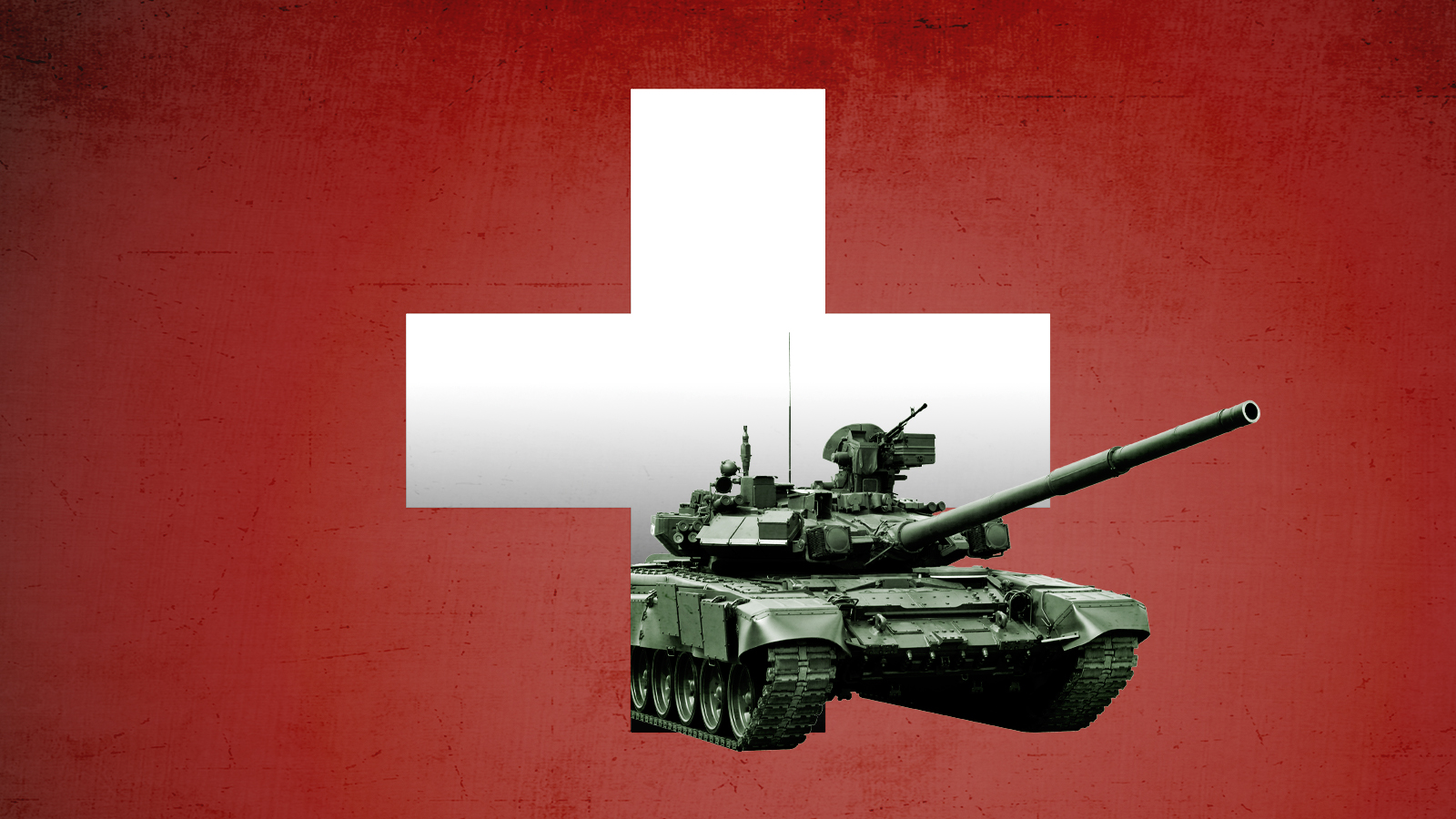Change comes to Europe. It'll be decades before we understand what it means.


A free daily email with the biggest news stories of the day – and the best features from TheWeek.com
You are now subscribed
Your newsletter sign-up was successful
It's been quite a week in Europe: Switzerland has edged away from its longstanding tradition of neutrality. Finland is on the cusp of asking for admission into the alliance after decades of standing to the side. Germany, after a nearly 80-year break from militarism, is suddenly beefing up its defense budget and sending arms to Ukraine.
The rule of physics applies: For every action, there's a reaction.
So it's natural that Vladimir Putin's decision to wage war on Ukraine has produced a massive series of reactions across the rest of Europe. But we might take a moment to contemplate the unintended consequences of all these changes, especially when they come so quickly and with so little debate.
The Week
Escape your echo chamber. Get the facts behind the news, plus analysis from multiple perspectives.

Sign up for The Week's Free Newsletters
From our morning news briefing to a weekly Good News Newsletter, get the best of The Week delivered directly to your inbox.
From our morning news briefing to a weekly Good News Newsletter, get the best of The Week delivered directly to your inbox.
At National Review, Michael Brendan Dougherty on Monday pointed out that neutrality for countries like Finland and Switzerland had benefits to those countries — and to the world at large. "Neutrality was for some of these nations a necessary condition for their independence, for their freedom from the rivalries among cousins that could send this duchy or that province into devastating conflict with one another," he wrote. (That was certainly true of Finland, which shares an 830-mile border with Russia, and wanted to avoid another conflict with its neighbor.) He added: "Neutral states also offered, before the advent of bodies like the U.N., 'safe spaces' for various dissidents or even negotiations for the larger powers."
Likewise, we all know the reasons for Germany's deep-seated reluctance to build up its military: The country is still grappling with its sins from World War II — a process that may never end, and maybe shouldn't. Laying off the arms race was an understandable way to deal with its guilt, and perhaps to prevent a relapse. "German pacifism is a real thing, and it pulsates through German society," the Atlantic Council's Rachel Rizzo wrote this week. "Throughout the years, there hasn't ever been broad public support for a more robust defense posture." Now there's a crack in that wall.
This isn't to say that Finland will suddenly find itself at war with Russia, or that German militarism will automatically create new problems with the continent. We don't really know, and history doesn't always repeat itself. But the pre-Ukraine order in Europe didn't come about by accident — there were reasons why things were the way they were. There may be good reasons for that order to change; we may yet come to find that the old reasons still have meaning in this strange and scary new world.
A free daily email with the biggest news stories of the day – and the best features from TheWeek.com
Joel Mathis is a writer with 30 years of newspaper and online journalism experience. His work also regularly appears in National Geographic and The Kansas City Star. His awards include best online commentary at the Online News Association and (twice) at the City and Regional Magazine Association.
-
 The environmental cost of GLP-1s
The environmental cost of GLP-1sThe explainer Producing the drugs is a dirty process
-
 Greenland’s capital becomes ground zero for the country’s diplomatic straits
Greenland’s capital becomes ground zero for the country’s diplomatic straitsIN THE SPOTLIGHT A flurry of new consular activity in Nuuk shows how important Greenland has become to Europeans’ anxiety about American imperialism
-
 ‘This is something that happens all too often’
‘This is something that happens all too often’Instant Opinion Opinion, comment and editorials of the day
-
 The mission to demine Ukraine
The mission to demine UkraineThe Explainer An estimated quarter of the nation – an area the size of England – is contaminated with landmines and unexploded shells from the war
-
 The secret lives of Russian saboteurs
The secret lives of Russian saboteursUnder The Radar Moscow is recruiting criminal agents to sow chaos and fear among its enemies
-
 Is the 'coalition of the willing' going to work?
Is the 'coalition of the willing' going to work?Today's Big Question PM's proposal for UK/French-led peacekeeping force in Ukraine provokes 'hostility' in Moscow and 'derision' in Washington
-
 Ukraine: where do Trump's loyalties really lie?
Ukraine: where do Trump's loyalties really lie?Today's Big Question 'Extraordinary pivot' by US president – driven by personal, ideological and strategic factors – has 'upended decades of hawkish foreign policy toward Russia'
-
 What will Trump-Putin Ukraine peace deal look like?
What will Trump-Putin Ukraine peace deal look like?Today's Big Question US president 'blindsides' European and UK leaders, indicating Ukraine must concede seized territory and forget about Nato membership
-
 Ukraine's disappearing army
Ukraine's disappearing armyUnder the Radar Every day unwilling conscripts and disillusioned veterans are fleeing the front
-
 Cuba's mercenaries fighting against Ukraine
Cuba's mercenaries fighting against UkraineThe Explainer Young men lured by high salaries and Russian citizenship to enlist for a year are now trapped on front lines of war indefinitely
-
 Ukraine-Russia: are both sides readying for nuclear war?
Ukraine-Russia: are both sides readying for nuclear war?Today's Big Question Putin changes doctrine to lower threshold for atomic weapons after Ukraine strikes with Western missiles
